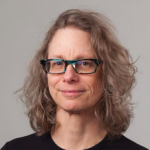 Image Courtesy of: www.tasnimnews.com/fa/news/1395/07/11/1202307
Image Courtesy of: www.tasnimnews.com/fa/news/1395/07/11/1202307
The ‘information society’ has continually faced tensions over the privatization of culture, commons-based visions and the commercialization and commoditization of information, communication and emerging technologies. This has included seemingly mundane everyday instruments such as social media, apps and Geoweb tools, as well as broader infrastructures and artefacts created to enlarge people’s powers and capacities (while potentially diminishing the capacities of others). Given the contemporary climate of communication as a struggle between the production and ownership of media and implications of disinformation, media manipulation, #fakenews and longstanding global discrepancies in inclusion, access and e-quality, our next Geothink&Learn is focused on the political economies of information and technology. We understand political economy to mean all structures, hegemonies and inequalities of power, production, distribution and consumption across different scales.
April’s installment of Geothink&Learn brought together a panel of experts in the fields of Information, Communication and Technology (ICT), Communication Studies, Environment and Geography to discuss central questions of power, inclusion, and equality which will shape the extent to which media, communications, and emergent technologies can serve and respond to public interest and democratic culture. (Catch an audio recording of the session along with a transcript of the question and answer session below.)
On Wednesday, April 25 at 4:00 (EST), Geothink.ca held its ninth monthly Geothink&Learn video conference session on the topic of the political economy of information and technology. It highlighted Geothink’s unique interdisciplinary perspective and included a myriad of ideas from our faculty, students and partners.
The convener for the session was Geothink Co-Applicant Daniel Paré, an associate professor in the Department of Communication and School of Information Studies at the University of Ottawa. Panelists included Geothink Co-Applicant Leslie Shade, a professor in University of Toronto’s Faculty of Information (iSchool) and Associate Dean of Research at University of Toronto; and, Agnieszka Leszcynski, a senior lecturer in University of Auckland’s School of Environment.
A question and answer session followed after presentations concluded. Our panelists briefly introduced their research and then reflected on the political economy of information technology.
Transcript of question and answer session:
1. Are there historical analogues that mirror these recent developments or are we facing a new set of issues?
Answered live in the session.
2. Does it matter who is participating in digital resistance? Does resistance by only certain groups (e.g. those that have the resources to do so) create new digital divides?
Answered live in the session.
3. New tech is built to create habit forming behaviours. Is it more important to counter predatory design or to offer alternatives?
Answered live in the session.
4. What does the news on aggressive data collection by private companies tell us about the importance of digital literacy amongst citizens and policy makers?
Answered live in the session.
Download a PDF of this event to share.
When:
Wednesday, April 25, 2018 at 4:00 PM to 5:15 PM [NOW CONCLUDED]
Where:
https://zoom.us/webinar/register/WN_3AGE9hwASfGiJPw10J4HhA
After registering, you will receive a confirmation email containing information about joining the webinar.
Convener:
Daniel Paré
Moderator:
Sonja Solomun
Panelists:
 Daniel Paré: Daniel Pare is Associate Professor in the Department of Communication, University of Ottawa. As a co-applicant of Geothink, his research and policy-related work focus on social, economic, political and technical issues arising from innovations in information and communication technologies (ICTs) in developing and industrialized countries. Areas of specialization include ICTs and international development (ICT4D), e-commerce, Internet governance, information and communication policy, e-government, and knowledge networks. Daniel is the OGP’s Independent Reporting Mechanism (IRM) Researcher for the implementation of Ontario’s Open Government Action Plan.
Daniel Paré: Daniel Pare is Associate Professor in the Department of Communication, University of Ottawa. As a co-applicant of Geothink, his research and policy-related work focus on social, economic, political and technical issues arising from innovations in information and communication technologies (ICTs) in developing and industrialized countries. Areas of specialization include ICTs and international development (ICT4D), e-commerce, Internet governance, information and communication policy, e-government, and knowledge networks. Daniel is the OGP’s Independent Reporting Mechanism (IRM) Researcher for the implementation of Ontario’s Open Government Action Plan.
 Leslie Regan Shade: Leslie Regan Shade’s research focus since the mid-1990’s has been on the social and policy aspects of information and communication technologies (ICTs), with particular concerns towards issues of gender, youth and political economy. Her research promotes the notion of the public interest in ICT policy; publications, community outreach and student supervision have as their goal the promotion of a wider popular discourse on information and communication policy issues and media reform in Canada and internationally for a diverse public and policy audience. This includes an ongoing commitment to building participatory scholar-activist networks.
Leslie Regan Shade: Leslie Regan Shade’s research focus since the mid-1990’s has been on the social and policy aspects of information and communication technologies (ICTs), with particular concerns towards issues of gender, youth and political economy. Her research promotes the notion of the public interest in ICT policy; publications, community outreach and student supervision have as their goal the promotion of a wider popular discourse on information and communication policy issues and media reform in Canada and internationally for a diverse public and policy audience. This includes an ongoing commitment to building participatory scholar-activist networks.
 Agnieszka Leszcynski: Leszcynski is a critical geographer and trained spatial data scientist whose work integrates geographic information science and social and economic geographies. She is an architect of the new field of digital geographies and a digital methods specialist. Her work is focused on the social, economic, and technological shifts associated with the commercialization of all things ‘geo’ (map-based apps, location-based services, sensors, geocoded content, etc.). Her current research looks at the value of digital location in the platform/sharing economy. She also has a longstanding interest in changing social relations around geoprivacy and the changing demographics and geographies of digital economy knowledge worker migration.
Agnieszka Leszcynski: Leszcynski is a critical geographer and trained spatial data scientist whose work integrates geographic information science and social and economic geographies. She is an architect of the new field of digital geographies and a digital methods specialist. Her work is focused on the social, economic, and technological shifts associated with the commercialization of all things ‘geo’ (map-based apps, location-based services, sensors, geocoded content, etc.). Her current research looks at the value of digital location in the platform/sharing economy. She also has a longstanding interest in changing social relations around geoprivacy and the changing demographics and geographies of digital economy knowledge worker migration.